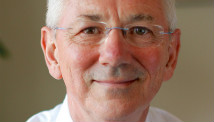Part of complete coverage on
By Ramy Inocencio, for CNN
January 25, 2013 -- Updated 1453 GMT (2253 HKT)
STORY HIGHLIGHTS
- "U.S. fiscal cliff still coming" in form of failure to raise debt ceiling - Cantor Fitzgerald CEO
- More than 25% of CEOs feel world economy will get worse in 2013, says PwC survey
- U.S. House of Representatives passed short-term debt ceiling increase Jan. 23
- Lutnick: "Dumb lending" caused 2008 credit crisis
Hong Kong (CNN) -- The world thought the U.S. fiscal cliff deadline was December 31, but "the fiscal cliff is (still) coming", says Howard Lutnick, CEO of global financial services firm Cantor Fitzgerald.
"You're going to watch the U.S. do crazy, crazy things this year," Lutnick told CNN's Richard Quest at the World Economic Forum in Davos, Switzerland. "The Republican Party that was elected to control Congress... (is) going to cross their arms and they are not going to raise the debt ceiling ultimately unless they get severe spending cuts, and the Obama administration is not going to give it to them."
If Congress fails to act, the U.S. and the world economy will have a "dreadful" 2013, Lutnick said.
Following this week's PricewaterhouseCoopers survey of global CEO confidence, Lutnick appears to be one of the more than 25% who think the world economy is more likely to deteriorate in 2013.
Despite Lutnick's concerns, on January 23 the Republican-controlled House of Representatives did pass a bill that would allow the U.S. Treasury to borrow new money through mid-May. President Barack Obama has said he would not oppose the proposal if it reaches his desk, although he prefers a long-term debt ceiling increase.
Lutnick adds that to avoid a repeat of the 2008 financial crisis, regulators need to actually address issues that caused it.
"What caused the credit crisis was just dumb lending. When you lend money to people who can't pay you back, you go broke."
Looking ahead to 2013, Lutnick says the biggest risk to global growth is the U.S. hitting the debt ceiling -- whether in the short- or long-term.
"Off the fiscal cliff we go. We (the U.S.) are irrational and we are silly... we are dopey."
Part of complete coverage on
January 23, 2013 -- Updated 1308 GMT (2108 HKT)
Global policymakers, leading thinkers and key entrepreneurs are gathering in Davos. CNN brings you the latest news, views and musings live.
January 25, 2013 -- Updated 1508 GMT (2308 HKT)
Free trade, transparency and a crackdown on tax cheats will be at the heart of Britain's G8 presidency, Prime Minister David Cameron told the World Economic Forum in Davos on Thursday as he set out his vision for a more competitive Europe.
January 25, 2013 -- Updated 1559 GMT (2359 HKT)
Walk the halls of Davos and you're bound to bump into celebrities, heads of state and even princes and princesses.
January 25, 2013 -- Updated 1155 GMT (1955 HKT)
While Prime Minister David Cameron's speech this week -- voicing his intent to let the British people vote on whether to stay in the European Union -- has caused concern on the continent, the mayor of London says it's all part of democracy.
January 25, 2013 -- Updated 1119 GMT (1919 HKT)
A top European Union official says there's no need for Britain to make threats to leave the union in order to reform its membership.
January 24, 2013 -- Updated 1937 GMT (0337 HKT)
Kenyan Prime Minister Raila Odinga says his country will not negotiate with al Qaeda-linked Somali militants who have threatened to kill Kenyan hostages unless Nairobi releases all Muslims charged with terrorism.
January 24, 2013 -- Updated 1904 GMT (0304 HKT)
LeWeb founder Loic Le Meur is looking to "digital hippies" as a potential theme for his next conference.
January 25, 2013 -- Updated 1347 GMT (2147 HKT)
The head of Airbus says the European aviation giant will take care to learn from its own mistakes -- and rival Boeing's -- ahead of the launch of its new widebody A350 aircraft.
January 23, 2013 -- Updated 1040 GMT (1840 HKT)
As extreme weather events cost the global economy billions each year, the "neglected" risk of climate change seems to be rising to the top of the agenda, Andrew Steer writes.
January 23, 2013 -- Updated 1342 GMT (2142 HKT)
Economic empowerment offers a win-win scenario for Saudi Arabia and its women, Mounira Jamjoon writes.
January 23, 2013 -- Updated 1154 GMT (1954 HKT)
The recession in Europe is entering its fifth year and unemployment doesn't look like it will be returning to normal levels anytime soon.
January 22, 2013 -- Updated 1324 GMT (2124 HKT)
What has been made clear by current events and financial upheavals since 2008 is that the global economy has become truly that -- global.
January 21, 2013 -- Updated 1458 GMT (2258 HKT)
On July 1, 2013 the 27-nation European Union will become 28. But is the Adriatic country ready to join Europe's elite club?

